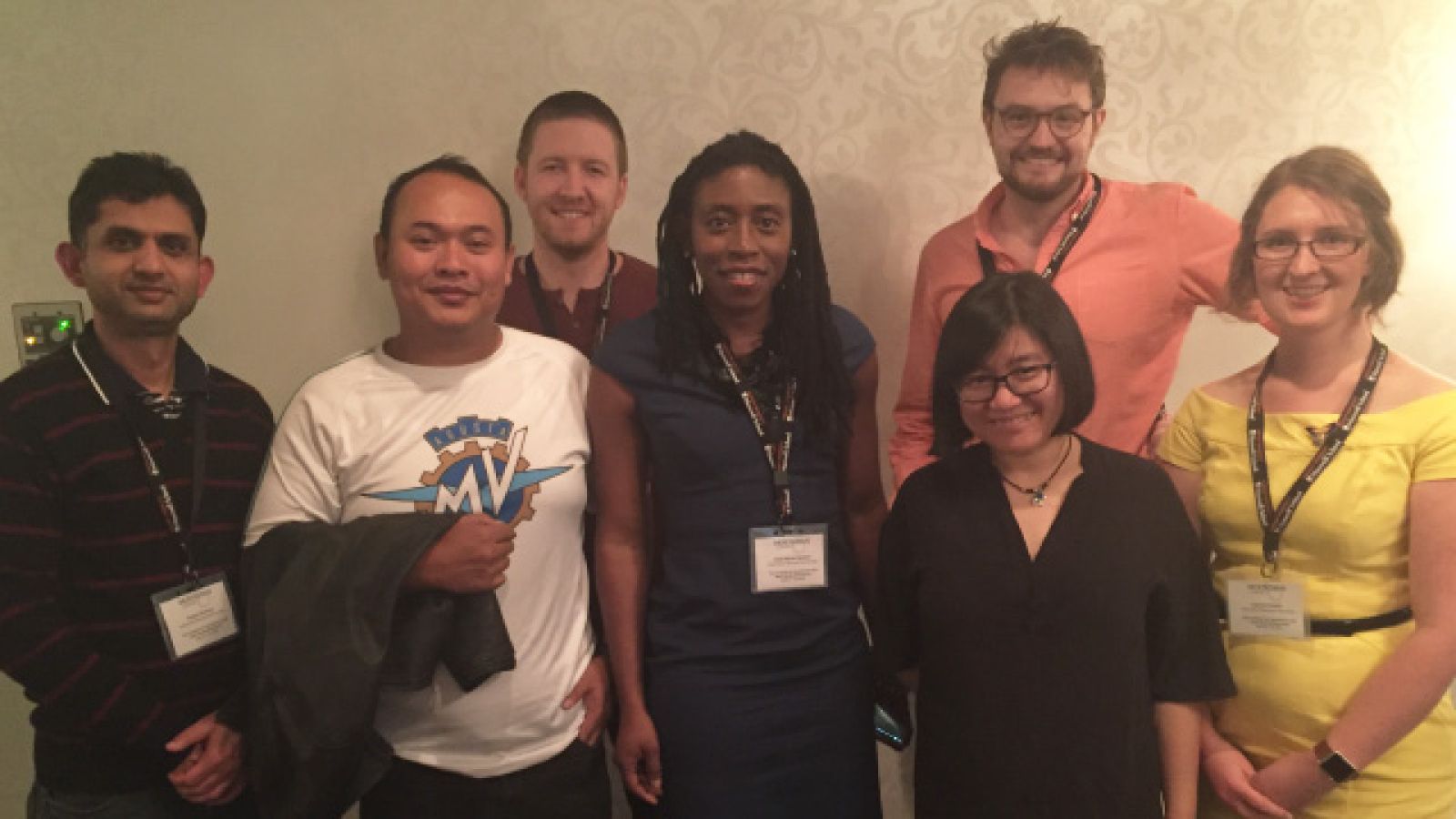ANU students present qualitative research findings to US university

The ANU students shared their research projects and explored fields ranging from Australian English to China’s foreign policy to food security in Nepal. Lauren is far right.
Six postgraduate students from the ANU College of Arts and Social Sciences and College of Asia and the Pacific have shared their research projects at an intensive camp at Syracuse University in the United States.
They attended the Institute for Qualitative and Multi-Method Research summer camp and explored fields ranging from Australian English to China’s foreign policy to food security in Nepal.
Lauren Sadow, Leopold Sudaryono and Jieyi Xie represented CASS, while Kim-Marie Spence, Gerard McCarthy and Puspa Sharma attended for the ANU College of Asia and the Pacific.
“It was eye-opening in a way that I never expected it to be,” Lauren Sadow, a PhD candidate in the School of Literature, Languages and Linguistics, recalls.
“It was really good to get an in-depth look at different methods and different options that I had.
“From doing that, I chose a couple of methods, and discarded others.”
Canberra-born Lauren presented her research design for her proposed Cultural Dictionary of Australian English: from theory to practice.
It identifies particular elements of Australian English, which differs to other Englishes, from an English as a Second Language (ESL) perspective.
“For example, the term ‘democracy’, which political scientists categorised by what countries had in their political system, people’s involvement, and their rights in those countries,” Lauren explains.
“Whereas I categorise ‘democracy’ and similar terms in other languages based on how they’re used.
“They took a Wittgensteinian and Foucauldian approach to language, whereas I used [ANU-based] Anna Wierzbicka’s Natural Semantic Metalanguage approach, which they hadn’t heard of, but quite enjoyed.”
Lauren also benefited from research design sessions, where fellow students gave feedback on her project.
“I wasn’t happy with the focus groups I’d planned, but the students gave me great ideas on how to better organise them and flow from one focus group to another.”
Another highlight was meeting Professor Frederic Shaffer, who ran an ethnographic methods session and spent several hours discussing Lauren’s proposal.
“He helped me to think outside the box on a couple of things, because when you’re in one field, sometimes you get a bit stuck in that way of thinking.
“That was one of the good things for me going to the summer school, because it was such a different approach. I was really able to move out of my comfort zone in a productive way.”
Dr Zhengdao Ye, who chairs Lauren’s supervisor panel, encouraged her to apply for the camp.
“My other supervisors are Professor Emerita Anna Wierzbicka and Dr Amanda Laugesen,” Lauren says.
“I came to ANU because of my panel. I could not get a more perfect supervisory panel for what I’m doing – a cultural dictionary of Australian English, based in Natural Semantic Metalanguage (NSM).
“Zhengdao is all about translation and intercultural communication, Anna came up with NSM, while Amanda is the Head of the Australian National Dictionary Centre.
“I’m so lucky to have all three of them here.”